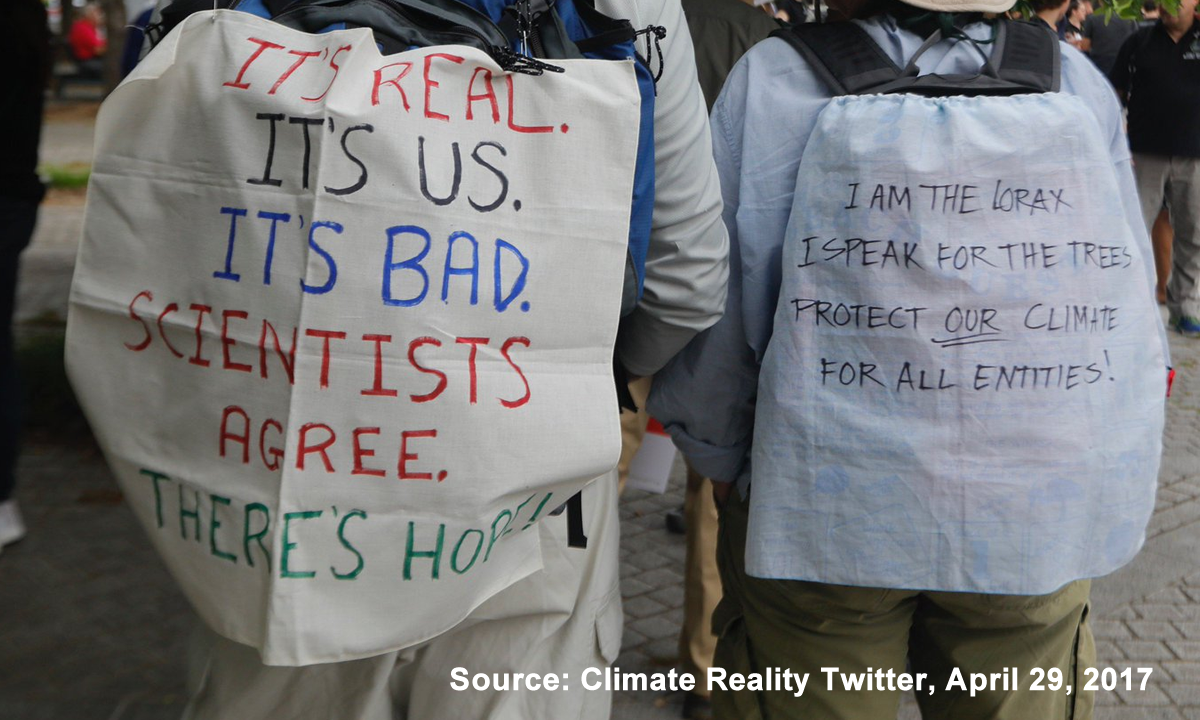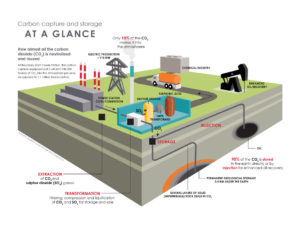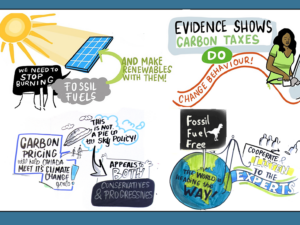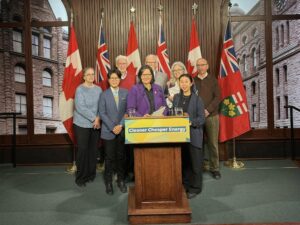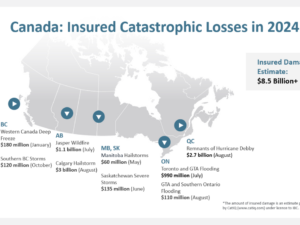As we move into the festive season, it is often a time to reflect on the year that was. At the June 2017 International Conference in Washington DC, Anthony Leiserowitz, Director of the Yale Program on Climate Change Communication advised us that there are five key ideas everyone should know about climate change: it’s real, it’s us, it’s bad, scientists agree, but there is hope! For those of us on the frontlines, our daily newsfeeds regularly confirm that the climate crisis is real, bad, it’s us and that scientists agree. The National Post recently ran the following article, The most accurate climate change models are the ones predicting the most alarming consequences. In the November 20th edition of Nature, I read the following sobering statement: “Even if — and it is a huge if — all countries meet their current Paris pledges, the world will probably heat up by substantially more than 2 °C above pre-industrial temperatures.” Here in Canada, our current greenhouse gas emission targets put forth by the Trudeau government are the same woefully inadequate targets that were set by the previous government. On December 7, the Pembina Institute reconfirmed Canada is still not on track to achieve its 2030 emissions reduction target, and will almost certainly miss its 2020 target. These are just a small sampling of the climate news I consume daily yet I am full of hope because I have seen real progress over the last two years. In September 2015, in my mind’s eye, there was a pinprick of hopeful light at the end of the tunnel with regards to the climate crisis. Now that light is the almost the size of a basketball. Why? Because we are progressing on the climate file. This fall, in my expanded role at CCL as International Outreach Manager, I attended five climate conferences: the 46th Plenary of the Intergovernmental Panel on Climate Change (IPCC), ClimaCon (Climate Action Network Canada’s annual conference), The Future is Ours (CCL Canada’s National Conference), COP 23 in Bonn (the United Nations Framework Convention on Climate Change 23rd Conference of the Parties) and CCL USA’s Congressional Education Day. At all of these events, I either developed or deepened relationships with climate heroes across the planet. At the IPCC and COP23 events, the work being done to foster gender equity in international climate leadership fueled me with great hope. In the 2017 book by Paul Hawken Drawdown: The Most Comprehensive Plan Ever Proposed to Reverse Global Warming educating and empowering women is sixth of the hundred most important things humanity can do to reverse global warming. At COP23, I was surrounded by 25,000 people from around the world who are actively working on solutions in thoughtful and meaningful ways. Specifically, the Talanoa dialogues introduced at COP 23, are poised to be a transformative agent of change. At COP23, for almost three hours, I sat in a room and listened to climate leaders from civil society and governments while they shared fierce honesty from their perspectives about the climate crisis in a respectful way. The Fijian presidency of the COP23 is bringing year-round open participatory of Talanoa dialogues to the climate policy process. It is unprecedented and will give us all a voice in shaping Earth’s future. While lobbying in both Washington DC and Ottawa this year, I repeatedly witnessed heroism by everyday citizens as they got out of their comfort zones and brought climate solutions to the halls of power. I was privileged to bear witness to world-changing conversations in unlikely circles. I wish I could say more, however, we use something akin to Chatham House rules when we lobby unless there is a mutual agreement with the politician to do otherwise. We are not in the clear yet, but if we keep doing our work and trusting that others are doing their work too, I feel we have the capacity to create a better world because of the climate crisis. I also recognize that I am probably more hopeful than most people because I have had front row seats to the best show on Earth: watching humanity act on the climate crisis alongside some of the best volunteers on the planet at Citizens’ Climate Lobby. Thank you, everyone, for your unconditional giving. I look forward to 2018 because of what I know.  Why can’t some people see the progress and feel hope? I think a book I read just before the US 2016 presidential election might shine a light on this question: Progress: Ten Reasons to Look to the Future by Johan Norberg. The book’s spirit is summed up by the author, who writes in an article about the book, “we’re living in a golden age“ yet we are hard-wired not to believe this fact.
Why can’t some people see the progress and feel hope? I think a book I read just before the US 2016 presidential election might shine a light on this question: Progress: Ten Reasons to Look to the Future by Johan Norberg. The book’s spirit is summed up by the author, who writes in an article about the book, “we’re living in a golden age“ yet we are hard-wired not to believe this fact.
BLOG: Taking Stock of Climate Progress Creates Real Hope
Home » CCL Canada News » BLOG: Taking Stock of Climate Progress Creates Real Hope


